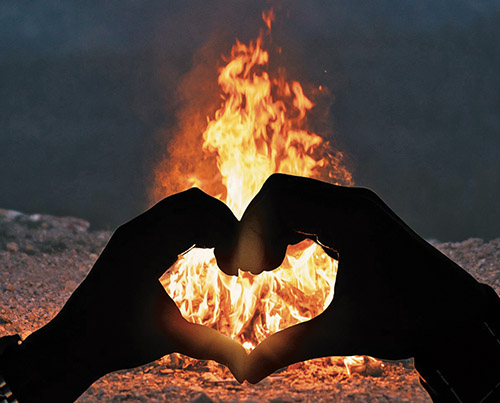
Sixty years after the destruction of the Second Temple, the 24,000 students of the legendary Rabbi Akiva perished during a terrible plague. Then, the tide turned—on the 33rd day of the Omer, Lag B’omer, they ceased dying.
As children, we learned that the students suffered this horrible consequence because of their lack of mutual respect. A narrative taught to impart a solid lesson on unity, brotherly love and communal responsibilities. In order to heal a shared tragedy, we needed to acknowledge and engage with the other more than ever. Judaism can never be something learned from books; Judaism is lived and shared. You can’t make the world a better place while sitting in an ivory tower.
You can, however, “Make the world a better place, together.” And that is precisely the motto of the One Jewish People Project—an ambitious initiative to encourage dialogue and unity between disparate Jewish groups through acts of kindness and altruism.
The initiative models the living and sharing of a dynamic Judaism through projects that proclaim—“we will take responsibility for our actions and for each other.” The Project is one of those big ideas that will ensure the spirit of Lag B’omer is advanced in new ways that can go viral in the best ways possible.
At the forefront of taking communal responsibility throughout the year, you’ll find Yad Ezra V’Shulamit, an organization in Israel that provides everything from food baskets and daily hot meals for children, to helping the youngsters with their homework, as well as offering them afternoon activities so they have a normal childhood. They also help the parents find work, starting off with assisting in writing resumes and learning how to interview—whatever they can do to help Israelis in desperate poverty get back on their feet. No Jewish Israeli is turned away.
Not only do they consistently assume responsibility for our nations’ emotional and physical needs, on a deeper level they empower families to succeed; to rediscover identities and individuality that can be suppressed during hard times. Impoverished families face internal conflict every day. However, when understood that Yad Ezra V’Shulamit has their back—they can stand straighter, they can achieve.
The lessons of Lag B’omer are about keeping people alive, spreading education, helping others and most of all—taking pride in who we are. You can extend those lessons throughout the year by supporting the people who support our people. This year as you celebrate by the bonfire, singing and enjoying the barbecuing, take a moment to remember how far we’ve come and that the long list we have yet to complete can be done—together.
By Rifki Orzech










